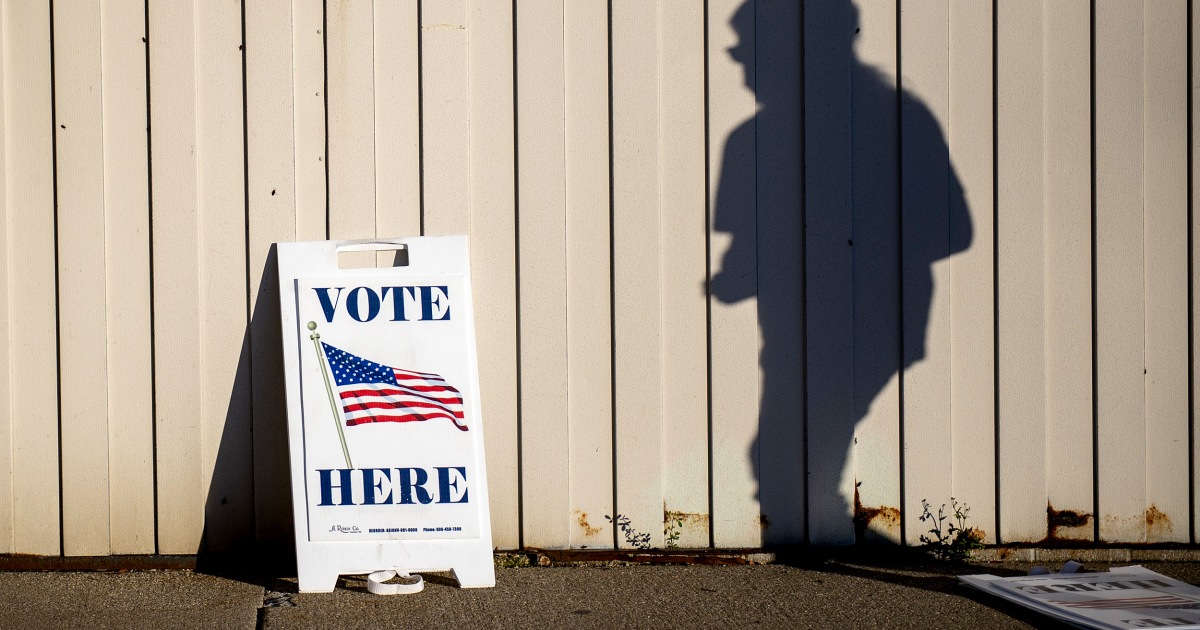
WASHINGTON — Democrats are about to face another stress test over the filibuster, triggered this time by a high-priority bill to remake U.S. election laws, headed Tuesday for a dead end due to the 60-vote rule.
And it isn't just Sen. Joe Manchin, D-W.Va., and Sen. Kyrsten Sinema, D-Ariz., who oppose rewriting the rules of the Senate. The two moderates have been the most vocal, but it's the worst-kept secret in Washington that they are not alone.
Several other Democrats have indicated in interviews that they are reluctant to kill the filibuster or that they prefer to make "reforms" — Washington-speak for maintaining a supermajority to pass bills, even if changed a bit from the current filibuster rules.
It's a harsh reality for progressives — both inside the Senate and outside — who had hoped their party might be provoked into nuking the filibuster and approving legislation with a simple majority.
The anti-filibuster drumbeat from liberal Democrats grows louder each time a bill with the support of a majority fails on the Senate floor due to the 60-vote rule. Filibuster critics said it should be eliminated after Republicans blocked a bill to create a commission to investigate the Jan. 6 riot.
That appears likely to happen again this week with the Democratic voting bill, which has been rejected as a nonstarter by the GOP and reflects a lengthy wish list of liberal priorities.
This round will test those senators who say they support overhauling voting laws, but not the drastic step of killing the filibuster for it.
Among them is Sen. Mark Kelly, D-Ariz., who is noncommittal on changing the rules.
"What I'm open to is considering and looking at any proposed changes in the rules. And I will ultimately make a decision based on: Do I feel — is this in the best interest of the state of Arizona and the country?" he said. "And I'm not looking for something that is in the best interest of just Democrats."
Sen. Maggie Hassan, D-N.H., wants reform, not an elimination.
"I have talked about the importance of reforming it," she said. "I think it's critically important that it not be abused and I think that we are having these discussions right now."
'A tool just for obstruction'
The voting bill passed the House on a party-line basis and would undo restrictive voting laws in Republican-led states like Georgia and establish universal requirements, like 15 days of early voting in every state.
"I am still in that place," Sen. John Hickenlooper, D-Colo., said when asked if he’s supportive of preserving the filibuster. "But I think, like a lot of people, I’m having frequent conversations."
Hickenlooper, a Senate freshman and former Colorado governor, said he gets his advice from other governors, like former Gov. Phil Bredesen, D-Tenn., who he said laid out reasons for gutting the filibuster in a recent conversation.
"He was talking about how it hasn’t been a thing to help the minority get their voice heard, it’s become a tool just for obstruction," Hickenlooper said.
Long-serving institutionalists, like Sen. Dianne Feinstein, D-Calif., and Sen. Patrick Leahy, D-Vt., have not said whether they'd support abolishing the filibuster.
Progressives hope if they can convince Manchin and Sinema, the other skeptics won't be a problem.
"There are clearly a number of senators who are reluctant to change the rules but who have also made it clear in recent months that they are frustrated with the status quo and won’t accept inaction forever," said former Democratic leadership aide Eli Zupnick, now a spokesman for Fix Our Senate, a coalition of dozens of liberal advocacy groups.
"So we are very hopeful that once the caucus makes a decision and has Sen. Manchin and Sen. Sinema on board, that the rest of the caucus will be on board and make the changes necessary to make the Senate work," he said.
A blockade of the election overhaul is likely to persuade some Democrats to scrap the supermajority threshold, including Sen. Jacky Rosen, D-Nev., who said, "If eliminating the filibuster is what it takes to get it done, then we must protect our democracy at all costs."
Senate Minority Leader Mitch McConnell said Thursday that "all Republicans" will oppose the voting bill in its current form, even with changes Manchin has proposed seeking compromise. McConnell, pointing to the most common criticism of the bill, said it would federalize elections and shift control of the process away from the states.
McConnell, who killed the filibuster for confirming Supreme Court justices when he ran the Senate, would level a strenuous objection to any attempt to weaken the 60-vote rule for passing bills.
He holds a tight grip on his conference and has persuaded Republicans against providing the necessary 10 votes to pass major legislation, like the Jan. 6 commission and the Paycheck Fairness Act.
And while Democrats say their voting bill is necessary to save democracy, conservatives counter that rewriting election rules on a party-line basis would only harm public confidence in elections.
“What we are talking about isn’t just Senate procedure, it’s a complete takeover of our elections, which will ultimately destroy the American people’s confidence in fair elections," said Jessica Anderson, the executive director of Heritage Action for America.
"news" - Google News
June 21, 2021 at 03:31PM
https://ift.tt/2SH4Doh
Democrats face filibuster stress test on key voting bill. It's not just Manchin and Sinema. - NBC News
"news" - Google News
https://ift.tt/2DACPId
https://ift.tt/2Wh3f9n
Bagikan Berita Ini














0 Response to "Democrats face filibuster stress test on key voting bill. It's not just Manchin and Sinema. - NBC News"
Post a Comment